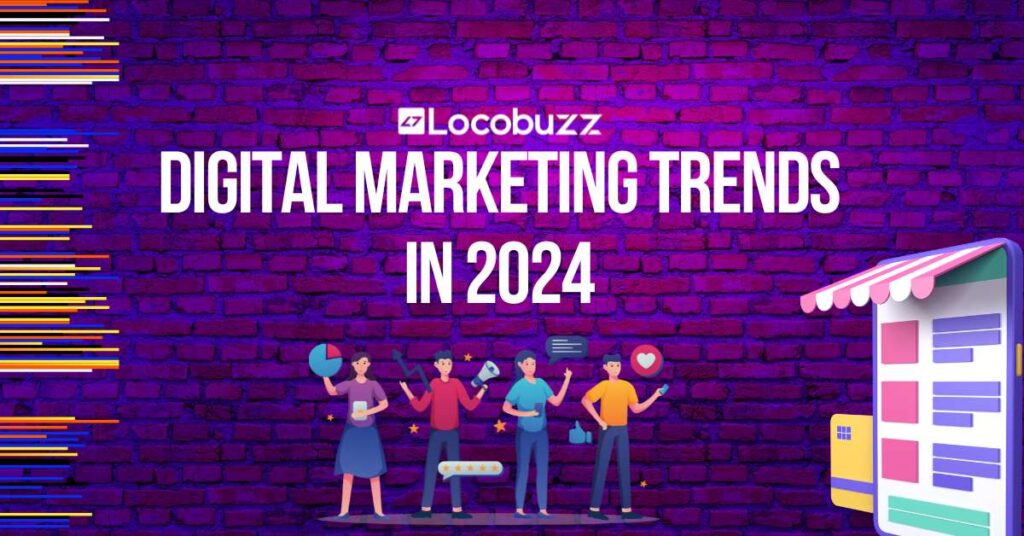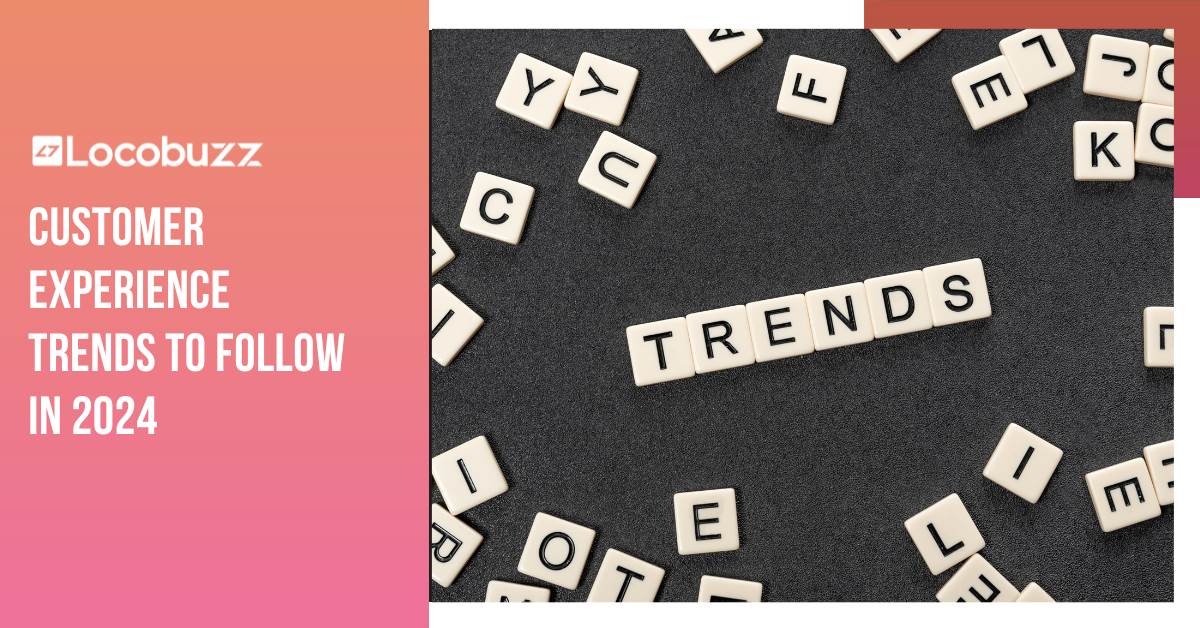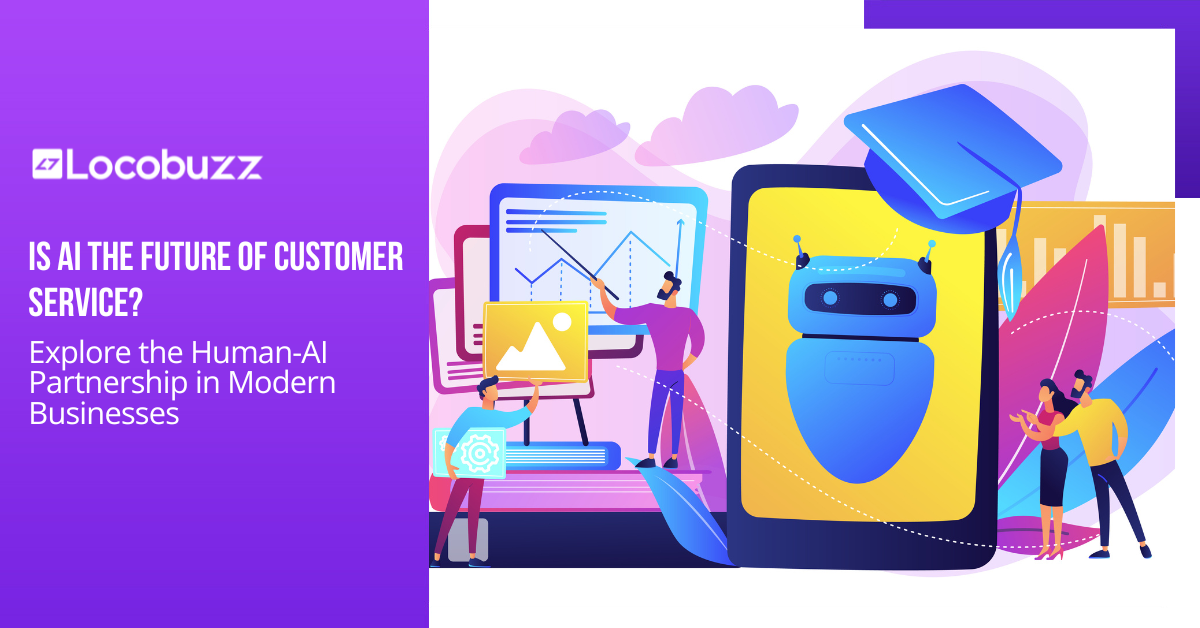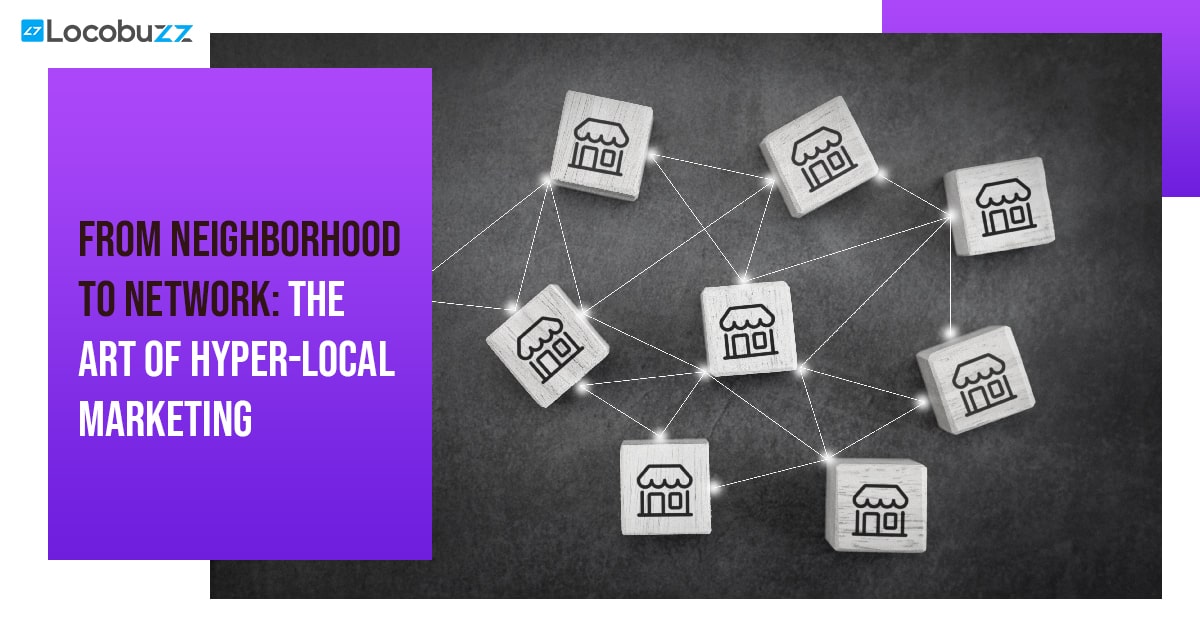Top 15 Digital Marketing Trends That Marketers Should Know [2024]

Keeping up with the ever-changing digital marketing landscape can feel like a full-time job.
From algorithm updates to new social platforms emerging overnight, it’s tough for brands to stay one step ahead but knowing the latest trends allows marketers to supercharge their online strategy and connect with customers in meaningful new ways. In this post, we cut through the noise to uncover the 15 most important digital marketing trends you’ll need to dominate in 2024.
Beyond the hype and headlines, emerging technologies like artificial intelligence are poised to transform how we personalize engagement, short-form video will continue disrupting content consumption habits and increasingly localized strategies will bring audiences and businesses closer together. As the global digital population surpasses 5.3 billion people by next year according to Statista, the opportunity for ROI has never been greater.
Now that gives you a sense of the vast digital audience marketers can potentially reach so let’s get started unlocking the full potential of digital together!
15 Digital Marketing Trends to Supercharge Your Success in 2024
1. AI-powered and Data-driven Personalization
Artificial intelligence and vast data sets are revolutionizing how brands interact with customers. According to a recent report, 92% of businesses use AI-driven personalization tactics, and on average, there is a 10% to 15% increase in revenue due to personalization. By analyzing user behavior patterns and preferences, AI enables companies to deliver hyper-personalized experiences tailored for each individual and rather than generalized messaging, AI allows marketers to understand customers at a deeper level and provide tailored recommendations, offers, and content they truly want.
This could mean serving unique product suggestions based on past purchases, showing location-based ads to local customers, or greeting users by name on their favorite channels. When done right with adequate privacy controls, personalization builds strong bonds of trust between customers and brands.
It’s an exciting trend that, when paired with actionable consumer insights, can take user interactions to an immersive new level.
2. User-generated and Video Content Optimization
Consumer participation is revolutionizing digital content as today, audience wish to engage with brands through creative works of their own and when harnessed effectively, user-generated content can boost marketing far beyond the confines of social feeds.
Savvy companies now encourage organic video clips, images, hashtags, and discussions among fiercely loyal customer communities. Witnessing a peer’s perspective builds affinity like no advertisement ever could. Video in particular engages younger demographics, with bite-sized clips optimized for mobile consumption across YouTube, Instagram, and TikTok.
Quality guidance and strategic incentives inspire valuable user creations and curating worthwhile submissions showcases the most helpful while cultivating community.
When optimized well, this peer perspective amplifies brand messages through authentic experiences, increasingly targeted using data insights into preferred topics as customer innovation thus drives connections in novel ways.
3. Content Marketing Strategy Refinement
According to a survey by Semrush, 76% of content marketers track the performance of their content regularly, and 24% of them use data to optimize their content strategy.
As you can tell consistency and optimization are crucial to content marketing success. While initial campaigns may resonate, consumer interests rapidly shift and by monitoring engagement across channels, marketers notice waning responses to former favorites. It’s then time to reinvigorate strategies.
Refinement examines which topics, formats and platforms best spur interaction as some evolve by augmenting beloved elements whereas others undergo overhaul, with new focus areas identified through social listening as revisions tailor distribution to maximize reach.
Creators experiment with novel approaches, tracking how audiences react. Refinement becomes an ongoing process as customer profiles change and it helps content stay enthralling while addressing emerging passions.
Such optimization keeps communities engaged through consistent yet innovative material.
4. Social Media Engagement Enhancement
Social media engagement enhancement is an important digital marketing trend that aims to improve audience engagement on social media platforms. As social media users have very short attention spans these days, marketers need innovative strategies to capture and retain their interest.
According to a recent report, 90.2% of Gen Y are active on social media platforms, and 64% of consumers believe in brands that have an active and positive social media engagement.
One way to do this is by creating irresistible, snackable content formats like Instagram reels, Facebook videos and Twitter threads. Using intriguing captions, hashtags and visuals can pique people’s curiosity and encourage them to interact more.
Storytelling, interactive elements and real-time content like Facebook live sessions are also great ways to foster engagement and marketers also focus on replying promptly to customer queries and joining relevant conversations.
Measuring user behaviour on posts helps identify top performing formats as the goal is to design immersive experiences that turn casual readers into loyal brand followers and advocates through meaningful social interactions.
5. Mobile-friendly Website Development
Mobile-friendly website development is an important digital marketing trend nowadays. With the ubiquitous use of smartphones, it has become essential for businesses to design websites that offer an optimized user experience on mobile devices.
Websites need to be lightweight, quick loading and easy to read on mobile screens and elements like images, text size and navigation menu should adjust according to the device as according to a report by BusinessDIT, responsive designs have an 11% higher conversion rate compared to non-responsive sites, and 62% of businesses report increased sales as a result of responsive websites. Formatting the content as modular blocks helps users consume content conveniently in between activities on the go.
Most businesses revamp their existing websites to make them compatible with multiple devices and some create separate mobile websites or responsive designs with fluid layouts. Search engines also prioritize mobile-friendly sites in their algorithm.
Ensuring an intuitive, hassle-free user experience on mobiles helps businesses reach wider audiences as it improves customer satisfaction, leads and conversions for e-commerce sites. A responsive web design integrated with latest trends helps companies stay ahead in the ever-evolving digital world.
6. Conversation-based Assistance Integration
Conversation-based assistance is an upcoming digital marketing trend that involves integrating chatbots and virtual assistants to provide customers with helpful information. As consumers have less time and prefer quick solutions, they are adopting conversational interfaces that mimic natural human interactions.
Businesses are leveraging artificial intelligence-powered chatbots and voice assistants to engage in two-way conversations with customers. They are programming these virtual assistants with FAQs, feedback forms, live chat functions and other query resolution tools to handle a variety of customer requests smoothly. The conversational agents can be integrated across multiple touchpoints like websites, mobile apps, smart devices and social media.
This trend offers an effortless way for brands to support customers 24/7 without relying on live agents. It improves user experience and builds loyalty through personalized assistance. While driving better customer satisfaction, conversational interfaces when combined with analytical insights also help companies enhance their marketing strategies.
7. Voice Search Experience Improvement
Voice search is becoming increasingly popular as more users opt for hands-free operations on devices. According to a report by Yaguara, 93.7% of the search queries are answered accurately by voice search assistants, and the number of voice assistants worldwide will reach over 8.4 billion by 2024. As a result, improving the voice search experience has emerged as an important digital marketing trend. It involves optimizing content, websites and marketing collaterals to showcase accurate and relevant information for voice queries.
Results should address what users may ask technology assistants through natural conversational queries rather than keyword searches. Businesses optimize their content by incorporating common question-answer formats, conversational snippets and audio/video content. They also work on voice search engine optimization to rank higher for spoken searches.
Enhancing the voice experience with FAQs, audio tutorials, streaming instructions and virtual assistance helps resolve user doubts seamlessly. It improves visibility, leads and brand recall in a playful, non-intrusive way. Data from voice interactions further helps assess preference patterns and refine strategies accordingly. This trend delivers highly personalized solutions to keep up with the rapid evolution of user preferences in an engaging conversational style.
8. Local Search Optimization Tactics
Local search optimization involves optimizing websites, Google Business profiles and local listings to rank higher for geo-targeted searches. As more consumers search locally online, businesses are focusing on proximity-based marketing tactics.
They claim and verify their Google Business profiles with complete location details and they also complete local citations by being listed on third-party directories, local citation sites and business listing pages to build online presence.
Keyword research helps identify in-region long-tail keywords incorporating location, business name and services. They optimize website content, citations and Google My Business with these keywords using relevant local images and videos too.
Consistent posting of local offers, events and rewards garner natural backlinks and responding promptly to reviews builds credibility and trust within the community as tracking keywords and competitor data helps fine-tune strategies over time.
And according to a report by On The Map Marketing, 87% of consumers used Google to evaluate local businesses in 2022, and 42% of local searches involve clicks on the Google Map Pack.
9. Influencer Partnership Strategy Creation
Influencer partnership strategy creation is an emerging digital marketing trend where businesses formulate structured plans to partner with social media influencers. With the growth of influencer marketing, it has become important for brands to identify suitable influencers and map out collaborative strategies.
The strategies involve researching influencer networks, setting campaign goals, selecting micro or macro influencers, defining roles and responsibilities, outlining content formats and posting schedules. Communication guidelines, budget allocation, and review processes are also set out.
Influencers are briefed about brand values to develop authentic sponsored posts. Strategies aim to leverage influencer communities naturally through user-generated brand stories rather than forced promotions and this improves credibility of endorsements and drives better engagement and results for mutual growth. A well planned strategy ensures initiatives align with larger marketing roadmaps cohesively.
10. Paid Campaign Performance Measurement
Paid campaign performance measurement is also an emerging digital marketing trend focused on analyzing the returns from paid advertising investments. With growing budgets allocated to paid channels, it has become important for marketers to rigorously track KPIs of individual campaigns.
Businesses leverage analytics tools to measure metrics like impression, click-through rates, conversion rates and ROI for each paid marketing campaign. And according to a report by Windsor.ai, 25 essential PPC performance metrics that marketers should measure include cost per acquisition, return on ad spend, impression share, quality score, and bounce rate.
These tools also assess engagement patterns across networks, devices, regions and audience demographics and performance of ad creative variants is also compared to optimize for maximum responses.
The analysis helps allocate future spends optimally based on past campaign insights. Under-performing keywords or placements are eliminated while top conversion strategies are amplified and regular measurement ensures adherence to marketing objectives. It also helps marketers make data-backed decisions around budget allocation between paid channels. This emerging trend drives more focused, targeted and impactful paid advertising.
11. Permission-based Communication Approach
Permission-based communication is a trend where brands adopt an opt-in approach for all customer engagements.
With customer privacy becoming a priority, brands are shifting away from interrupting users as they seek permission from the outset to deliver personalized experiences. Brand messages, offers and reminders are only sent to those who explicitly consent to receive them.
Marketers deploy preference centers, signup forms and dashboard settings empowering people to choose communication channels and frequency as per their liking and individuals stay in control of unsubscribing or muting contact anytime.
This permission-first approach improves customer trust and satisfaction with transparent terms and it helps brands comply with stringent privacy laws while maintaining relevance. Monitoring permission status also provides insightful consumer preference data to refine strategies.
12. Omnichannel Attribution Methodology
Omnichannel attribution methodology is a methodology where brands assign credit for a conversion across multiple touchpoints.
As consumers research on multiple devices before purchasing, it is difficult to attribute a sale to just one medium. The omnichannel approach acknowledges that influence comes from various brand interactions across websites, emails, social media, product listings and ads.
Marketers leverage analytics tools to analyse consumer journeys, identify various touchpoints involved and allocate weighted credit to each based on engagement level as this provides a holistic view of individual and co-operative marketing program performance.
The omnichannel methodology helps optimize budgets efficiently and it minimizes attributed credit leakage and assigns realistic performance metrics. This aids balanced resource allocation among channels to maximize overall conversions and return on marketing investments.
13. Interactive Content Portfolio Development
Interactive content portfolio development is also a trend where brands create engaging content showcases on their websites and profiles.
According to a report by Outgrow, interactive content generates 2x more conversions than passive content, and 88% of marketers say that interactive content is effective in differentiating their brand from competitors.
With the focus on customer experience, businesses understand the need to display their work interactively. They develop immersive digital content portfolios using interactive elements like expandable content panels, lightboxes, collapsible elements and filterable project galleries.
The trend aims to give audiences an impressive first impression through aesthetically pleasing visually driven presentations and potential clients can explore works easily, digesting information at their own pace.
Businesses achieve a balancing act between brevity and depth, stimulating curiosity without overwhelming visitors. Interactive portfolios complement resume-style listings, projecting professional expertise through a lively demo of skills and style. This keeps audiences engrossed during profile tours.
14. Chatbot Customer Service Implementation
Chatbots have become a rapidly growing digital marketing trend as more businesses are recognizing their capability to enhance customer experience. They are artificial intelligence powered virtual assistants that use natural language processing to understand, respond and engage with customers.
By integrating chatbots into platforms like websites and mobile apps, companies can provide 24/7 customer support as they can resolve basic queries without any wait time which has become important with rising customer expectations.
They are equipped to handle common questions independently using their knowledge databases as this allows live support agents to focus on more complex cases. Chatbots also generate valuable analytics through conversations that help identify issues and improve processes.
For customers, chatbots ensure quick resolution of issues anytime from anywhere and this makes for a smoother buying and support journey. Their round-the-clock availability further adds to positive perception of brands among online shoppers.
15. SEO Factor Consideration
As search engines continue evolving, SEO experts must also adapt to changes in ranking algorithms and one major trend is the focus on additional optimization factors beyond basic on-page elements.
Search engines now place more importance on user experience and business credibility as site speed, link profile, mobile friendliness, social shares and backlinks from trusted domains impact rank. This has made optimization more multidimensional.
Marketers are considering non-traditional SEO elements to identify gaps and enhance ranking potential and a holistic approach analyzing all influence signals provides better results. This trend demands dynamic optimization to stay updated as it keeps the marketing exciting while improving organic reach through comprehensive technical and off-page improvements.
Moreover, SEO can help you attract more qualified prospects who are ready to buy from you, as SEO-generated leads have a 15% closing rate, compared to only 1.7% for outbound leads.
The Digital Marketing Landscape in 2024
The digital marketing industry is constantly progressing at a lightning fast pace as new technologies are being developed all the time that are transforming how brands can interact with customers and by 2024, the landscape will look vastly different than it does today.
We will start to see more immersive experiences become mainstream, like virtual and augmented reality. The metaverse will continue expanding, providing an exciting new digital world for people and businesses. Artificial intelligence capabilities will be even more sophisticated, helping automate processes while generating powerful personalized insights and marketers will have access to richer data sets and tools to analyze customer behaviors in depth.
How people consume content is also evolving rapidly. Short form videos, interactive formats, and voice enabled content will dominate and brands must adapt to remain relevant.
Successful marketers will embrace experimentation and innovation and those who can offer exciting experiences while providing value to audiences will thrive in the exciting and ever-changing digital marketing world of 2024.
Conclusion
The pace of change in the digital marketing world in 2024 will feel a lot like riding a high-speed train and the 15 trends discussed here will serve as the fuel propelling this exciting ride into the future.
Think of these emerging technologies and techniques like an engineer’s toolbox filled with innovative tools that each offer a unique way to connect with customers online. The challenge will be knowing when and how to apply these tools most effectively.
Whether creating more personalized experiences or fostering real conversations through immersive videos and chatbots, the underlying goal stays the same which is building meaningful connections with people. After all, that is what digital marketing is all about!

















